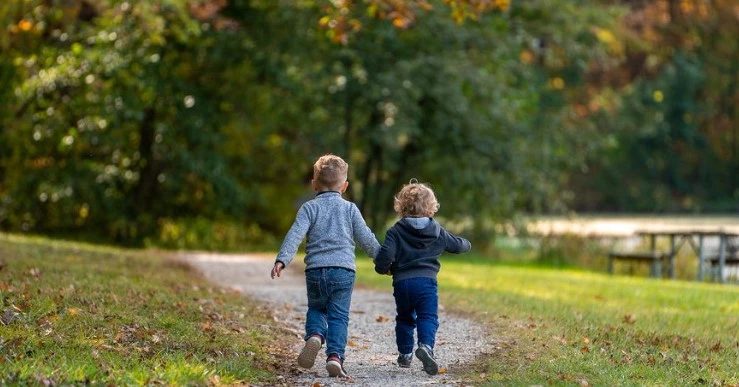
Partner Article
Regional campaigners call for end to ‘two-child limit’ affecting almost 90,000 Greater Manchester Children
Regional campaigners call for end to ‘two-child limit’ affecting almost 90,000 Greater Manchester kids
The End Child Poverty Coalition has produced figures on the number of children who are impacted by the two-child limit to benefit payments in Greater Manchester, ahead of a debate in parliament on the issue.
Greater Manchester Poverty Action has joined forces with MPs and fellow End Child Poverty coalition members across the country to call for an end to the ‘two-child limit’ to social security payments, ahead of a debate in Parliament on this issue.
This Tuesday (11 July), MPs will call for the ‘ineffective and cruel’ two-child cap to be abolished in a debate led by the MP for Liverpool Riverside, Kim Johnson.
Research by the End Child Poverty coalition has found that, by 2022, 89,270 babies and children across Greater Manchester were directly impacted by the policy which means that – since its introduction in April 2017 – almost all families having a third or subsequent child are no longer entitled to receive support for those children through Universal Credit or Child Tax Credit.
And the new analysis of data published today has found that the Greater Manchester Parliamentary constituencies worst impacted by the two-child limit include Bolton South East (where one in six of all children are hit by the policy), Manchester Central, Manchester Gorton, Oldham West and Royton, Rochdale, and Oldham East and Saddleworth.
Recent research has shown that abolishing the two-child limit would be the most cost-effective way of reducing child poverty. If implemented, this would immediately lift 250,000 children out of poverty across the country – and a further 850,000 children would be raised out of deep poverty, at a cost of just £1.3 billion.
The Government’s original – and continued – rationale for the policy is that parents who receive support from the social security system should make the ‘same financial choices’ about having children as those supporting themselves solely through work. However, the majority of families caught by the two-child limit across the country – 58% – are in work, with the policy creating a hole in their budgets that simply cannot be plugged by working additional hours.
Many others will have their children at a time when they are able to support themselves solely through work, but may need to turn to the social security system at some point in the future – for example, as a result of redundancy, bereavement, ill health or the breakdown of a relationship.
Graham Whitham, End Child Poverty Coalition spokesperson and CEO of Greater Manchester Poverty Action said: “The two-child limit on benefits is one of the most pernicious welfare policies ever seen in this country - it’s time for it to be scrapped. It forces parents into horrible choices and denies families the support they need from our social security system. “This new data serves to show the extremely damaging effect this policy is having in Greater Manchester and across the country. The government must lift the two-child limit so that all children can thrive.”
Joseph Howes, Chair of the End Child Poverty Coalition and CEO of Buttle UK said: “The benefits system should be there to help us all. Any family could fall on hard times - from losing a partner, being unable to obtain secure properly paid employment, or not being able to keep up with the increase in the cost of living. Poorer families who rely on benefit payments are denied the money they need for their children as payments are capped at the second child.” “There is one policy change that we know would make a direct and immediate difference, and that is to scrap the two-child limit. The policy is unfair in the indiscriminate impact it has on children, and there is no evidence it has achieved its aims. Abolishing the two-child limit would immediately lift 250,000 children out of poverty, and the government could make this change now.”
This was posted in Bdaily's Members' News section by Emma Elizabeth Lowe .






 A legacy in stone and spirit
A legacy in stone and spirit
 Shaping the future: Your guide to planning reforms
Shaping the future: Your guide to planning reforms
 The future direction of expert witness services
The future direction of expert witness services
 Getting people into gear for a workplace return
Getting people into gear for a workplace return
 What to expect in the Spring Statement
What to expect in the Spring Statement
 Sunderland leading way in UK office supply market
Sunderland leading way in UK office supply market
 Key construction developments in 2025
Key construction developments in 2025
 Mediation must be part of planning process
Mediation must be part of planning process
 From apprentice to chief financial officer
From apprentice to chief financial officer
 Don't stifle growth with apprenticeship cuts
Don't stifle growth with apprenticeship cuts
 The start-up landscape: What lies ahead in 2025
The start-up landscape: What lies ahead in 2025
 JATCO adds welcome drive to automotive sector
JATCO adds welcome drive to automotive sector